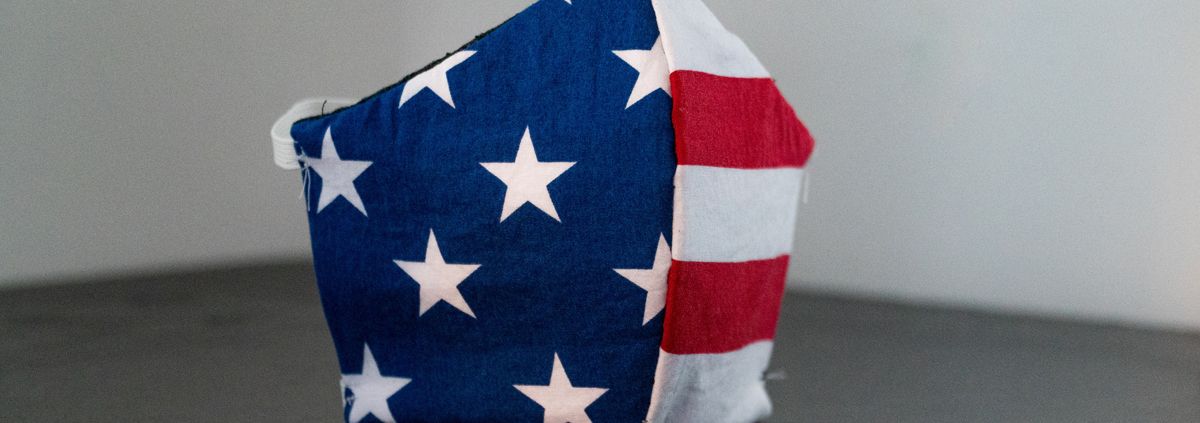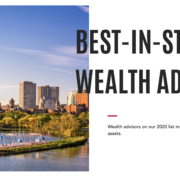Improving Investor Behavior: An Unintentional Sabbatical
Has it been a month already? In some ways, this feels like the longest 30 days many have ever experienced. For others, it seems to have gone by way too quickly. When much of the world is committed to staying home and avoiding COVID-19, time becomes relative. In many ways, it feels like a sabbatical, albeit an unintentional and unwelcome one.
Sabbaticals are offered as a chance to skip the routine and learn something new. An extended opportunity to challenge your perspectives and grow your skill set. With that in mind, what are you learning during your sabbatical? How will you grow from the experience? What will be different in your life afterward? New? Improved? The Same?
We’re learning a lot right now, on both micro and macro levels. Lessons about the economy, markets, human nature, and teamwork are appearing daily. If we fail to notice and learn from these, it will be a huge missed opportunity.
In that spirit, here are a couple of things I’ve learned over the past month.
Timing the market is a fool’s errand.
One of many lessons to learn in the COVID crisis is that timing the market with nearly any asset class, stocks, bonds, real estate, or commodities is as hard as trying to catch a falling razor blade. It is not only challenging but can be painful and hazardous to your health (and fingers!) Consider the weekend of April 3rd, which was only about two weeks ago. The U.S. Surgeon General describes the current environment as our “modern-day Pearl Harbor.” Then on Monday, the financial markets rally over five percent. Even with the holiday and a shorter week, the markets enjoy their best returns since 1974, rising 12.15 percent in just four days. The S&P 500 is up more than 25 percent from the lows on March 23rd, less than 30 days ago. The lesson: Time in the market beats timing the market.
Humility.
Even the best financial minds get humbled. Warren Buffett’s investments in several airlines were performing well until COVID-19 hit. You never know what can happen or what may be around the corner. There is risk in everything, everywhere, every day. Anyone who tries to tell you different is selling snake oil.
America does not back down.
America may pay a price, but we stand up and do what it takes to prevail. Our economy, the largest in the world, was brought to a screeching halt, full-stop, for 15 days, and then an additional 30 days. Trillions in economic fuel suddenly stopped to slow the spread of this virus. It was a pretty bold medicine to fight this enemy. A steep price, but a necessary one.
We have a government that is very politically divided. In a matter of days, an agreement to help support workers, businesses who employ those workers, and essential industries, provided financial resources to support their endeavors. When it matters, our country is still capable of coming together for the common good.
We are innovators and entrepreneurs.
Moments like these are a call to innovation. American companies are answering that call, transforming automotive facilities into ventilator factories, turning pillow production to mask creation, and going from near zero testing kits to millions in the matter of a couple of weeks. That is innovation.
Abroad the story is the same. James Dyson (of vacuum fame) designed a new ventilator in 10 days and is now making 15,000 of them. The UK government is buying 10,000, and he is donating 5,000 to help internationally.
When we look back on this period, how many new companies, ideas, and innovations will spring from this challenge?
Where we buy our stuff matters.
Examining where we buy our essential goods and services, our supply chain is critical. When we rely solely on international providers, we put ourselves at external risks. We saw this play out with our energy independence. By producing our own oil supplies, we are no longer at the mercy or whims of other countries. Now we are learning this lesson with other products (pharma, medical equipment, food). Perhaps we will learn the economics behind this lesson and learn to value relationships between nations. The lowest price is not always the best option.
We will get through this.
The resulting recession may be intense, and the timeframe is unknown, but I am optimistic. Prior to COVID-19, our economy was strong. Our banks were in great shape, unemployment was at the lowest levels in 50 years, and our country does not stand down. We are a do-what-it-takes nation. We will get through this and be stronger at the other end. We need to get the confidence of Americans back, and that will take time.
What will be different for you and your family? For you and your business? Your relationships?
If you were to look out three months from today, mid-July, and look back over the past 90 days, what progress would you like to see? What new innovations, strategies, relationships, knowledge, or skills would you like to have accomplished? Would you be healthier because you took a walk every day? Would you have cleaned up or accomplished that “someday to do list,” and see them in your history? Would you be closer to family and loved ones because you called them to check in?
Will your sabbatical point you to a brighter future?
Steve Booren is the Owner and Founder of Prosperion Financial Advisors, located in Greenwood Village, Colo. He is the author of Blind Spots: The Mental Mistakes Investors Make and Intelligent Investing: Your Guide to a Growing Retirement Income and a regular columnist in The Denver Post. He was recently named a Barron’s Top Financial Advisor and recognized as a Forbes Top Wealth Advisor in Colorado.








